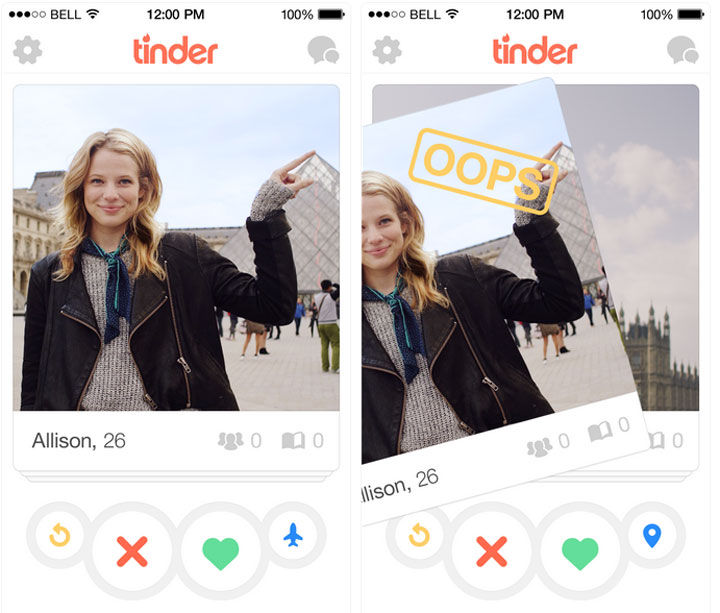With around 10 million users daily, the dating app Tinder has the potential to affect many people.

A new study is warning people the app, where users “swipe” on prospective partners based on appearance, is associated with low self-esteem – particularly in men.
The study, Love me Tinder: Body image and Psychosocial Functioning Among Men and Women, which was presented at the annual American Psychological Association conference in Washington D.C., says there were significant differences between those who use Tinder and those who don’t on how they looked at and felt about their body.
But what was surprising to researchers was that men who used the app were more likely to have self-esteem issues.
The findings are based off a survey of more than 1,300 people in the United States.
Study author Dr. Jessica Strubel, whose research at the University of North Texas focuses on body image, says she was inspired conduct the research when her students started telling her anecdotes about the app.
READ MORE: Alberta summer camp focuses on building girls’ self-esteem
“I was immediately intrigued because of how visual the app is,” she said in an email to Global News.
“I saw a potential study with the app, primarily because of how quickly evaluations were made based on overt physical appearance versus a personal bio or other type of verbal description that conveys personality, etc.”
She says while the correlation between the app’s use and psychological wellbeing exists equally for men and women, men who used Tinder exhibited the lowest self-esteem in the study.
READ MORE: Concerned about your child’s weight? Here’s some food for thought
One reason for this could be the ratio of user’s gender on it: there’re twice as many men as women, according to the study.
“Men, knowing that there are more of them on the app, try to increase their odds of matching with someone by swiping right with higher frequency,” Strubel said.
“The increases odds of being rejected by potential connections may put men into a vulnerable position, which could then affect their self-concept,” she said.
But the study doesn’t show that Tinder causes low self-esteem or body image issues, just that there’s a correlations. Strubel says a more in-depth study is necessary to “establish a better understanding of how Tinder does affect users.”
While there have been other studies on mental wellbeing and dating websites, this is the first to focus on Tinder, and as such, Strubel said more research is needed.
Going forward, she wants to look into other aspects of psychological well-being like depression, narcissism and eating disorders.




Comments